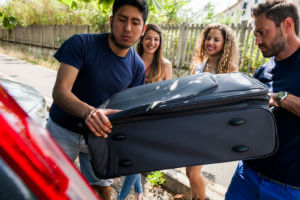 The Fourth of July is right around the corner and many families will be hitting the open road for vacations. While this can be a thrilling time and a great opportunity to reunite with families in other states, the risk of a crash goes up with more people on the roads. The summer heat can also take its toll on your vehicle, so you need to be prepared for car trouble.
The Fourth of July is right around the corner and many families will be hitting the open road for vacations. While this can be a thrilling time and a great opportunity to reunite with families in other states, the risk of a crash goes up with more people on the roads. The summer heat can also take its toll on your vehicle, so you need to be prepared for car trouble.
The list of summer road trip tips below can help you reduce your risk of an accident that could cause severe injuries to you or your loved ones. If you or your loved ones get injured in an accident caused by a careless driver on your road trip, contact our Macon car accident attorneys to discuss potential legal options. You could be entitled to compensation for damages.
Preparing Your Vehicle
Before you hit the road, be sure to give your vehicle a thorough inspection. Some specific things to check before your trip include:
- Air pressure in your tires, including the spare
- Headlights, brake lights, turn signals and emergency flashers
- Battery life and battery cables
- Brake pads and linings
- Oil levels and need for an oil change
- Wiper blades
Batteries are particularly susceptible to going bad during the worst time possible. Batteries should be tested when the battery is three years old and then every year after that. The typical battery has a lifespan of three to five years.
Check your tire pressure each season since it can deflate or expand due to different temperatures. If you have old or deflated tires there is a higher risk of a blowout when traveling on hot pavement.
You should also put together an emergency kit in case you run into vehicle trouble. Your kit should include:
- Jumper cables
- Traffic cones or road flares
- A jack
- Water bottles to stay hydrated while waiting for help
- Spare tire
- Tools
- Emergency charger for your phone
- First aid kit
- Non-perishable food
Preparing for the Heat
The summer heat can pose problems for your vehicle. This is why you need to make sure your vehicle’s cooling system is working properly before taking off on your road trip. Have the cooling system flushed on a regular basis and use the coolant recommended by your vehicle manufacturer.
You should also have your vehicle’s radiator, pressure cap, hoses and belts inspected before hitting the open road. Check your vehicle for any leaks and correct them. If you run into trouble on the road, remember not to remove the cap from a hot radiator.
Be careful not to put too much on your vehicle’s roof rack. Too much weight could increase your risk of an accident.
When it is sunny outside, make sure to wear sunglasses. Not only will this help protect your eyes from the bright summer sun, it will also help improve your visibility.
You might be tempted to wear flip flops or sandals while driving because you are returning home from the beach. However, this type of footwear is not safe for driving. Straps and soles can get caught under the pedals, increasing your risk of a crash.
Traffic Safety
Here are several things you can do to help lower the risk of a crash:
- Stop when you feel drowsy. A good rule is to take a break every couple of hours. If you need to stop, pull over in a safe place and rest.
- Have another driver so you do not get tired.
- Get enough sleep before a trip.
- Avoid driving at night when you are naturally feeling the urge to sleep.
- Avoid distractions.
- Know your route. Put the address into your GPS before you leave your driveway. Bring a map just in case your GPS device loses its connection.
Contact an Attorney If You Are Injured in a Crash
Despite your best efforts to stay safe on the road, you may still get injured in an accident. If you are injured, it is important that you seek medical attention to be treated for your injuries.
Your next step should be to contact an experienced Macon personal injury lawyer for assistance with your legal claim. We can discuss your options for recovery during a free legal review of your claim. We charge nothing for the initial consultation and only get paid if we help you to successfully recover compensation for your claim.
